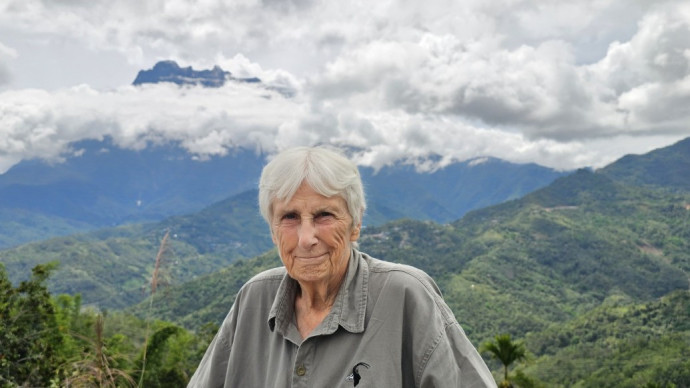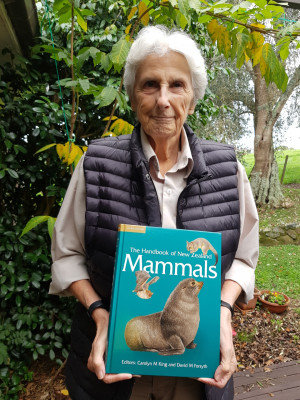2025 Thomson Medal: A life’s work on stoats

Emeritus Professor Carolyn (Kim) King FRSNZ of Te Whare Wānanga o Waikato – the University of Waikato has won the Thomson Medal for her five decades as a researcher, author, editor, historian, and lecturer in zoology and ecology.
Kim is a world authority on small mammals – especially stoats and weasels – both as invasive pests and as valued natives.
Her research has advanced our understanding of factors that control the sizes of their populations and informed strategies for pest management. In addition to her many scientific papers, she has shared her knowledge through eight books. Her popular science books are highly accessible to the general public, and she has spoken to many communities to promote engagement in conservation of New Zealand's ecosystems.
Kim has edited all three editions of the Handbook of New Zealand Mammals with Oxford University Press, along with several other reference texts. She also edited two of the Society’s scientific journals over a total of 33 years.

Kim says she has always loved the “willowy elegance and superb predatory adaptations of small mustelids”, and she studied them as part of an evolved forest community in England.
“Stoats are also native carnivores in England, where they do little harm except to introduced game birds.
“When rabbits were imported to New Zealand without their native predators, they began to threaten the profits of the wealthy 19th century wool barons.”
She explains that the deliberate introduction of stoats, weasels, and ferrets was seen as the cheapest way to restore what they thought of as “the balance of nature”.
But our native flightless birds have no defence against them. “That radical misjudgement has caused multiple problems ever since.”
Kim says she has spent 50 years working on stoats, but we still have them here in Aotearoa, “so you could say I haven’t made any progress at all”.
“But I can answer the question as to why we keep killing stoats and there are still stoats appearing again; and the answer is that it’s not just a matter of lethal control, which we are quite good at now, but we are no good at preventing them from coming back.”
Kim explains that juvenile kiwi are particularly vulnerable to stoats, and they won’t make it to maturity in areas where stoats aren’t controlled.
She says that we are obliged to reduce the numbers of stoats in the most humane way, by minimising the number of them out there to be eradicated:
“That's not possible yet, but it might be in the future. In in the meantime, we can admire them, even whilst at the same time trying to mitigate the damage they do to native biodiversity.”
When reflecting on her journey, Kim says her biggest challenge has always been the need to juggle professional and family commitments: “Without the support and understanding of friends and sympathetic employers, I would have got much less done.”
Kim says she is now fully retired “except for occasional talks to conservation or armchair traveller groups”, and her final and “most important” book Stoat in the Dock will tell you everything you need to know about how to control stoats… “for now at least”.
“The Award represents the last and most deeply appreciated endpoint of my life’s work.”
She says her list of acknowledgements takes up two whole pages in Stoat in the Dock but she would like to pay special tribute to John Innes and a long list of other colleagues who constantly supported her, “beginning with the indefatigable Professor Bruce Clarkson”.
“If I live to be 100, I will never be able to thank them all.”
Thomson Medal:
For outstanding contributions to the organisation, support, and application of research in science, technology, or the humanities.
Citation:
To Carolyn (Kim) King for editing, teaching, writing and research that have advanced, structured, and supported understanding of biological sciences in their broadest settings.
